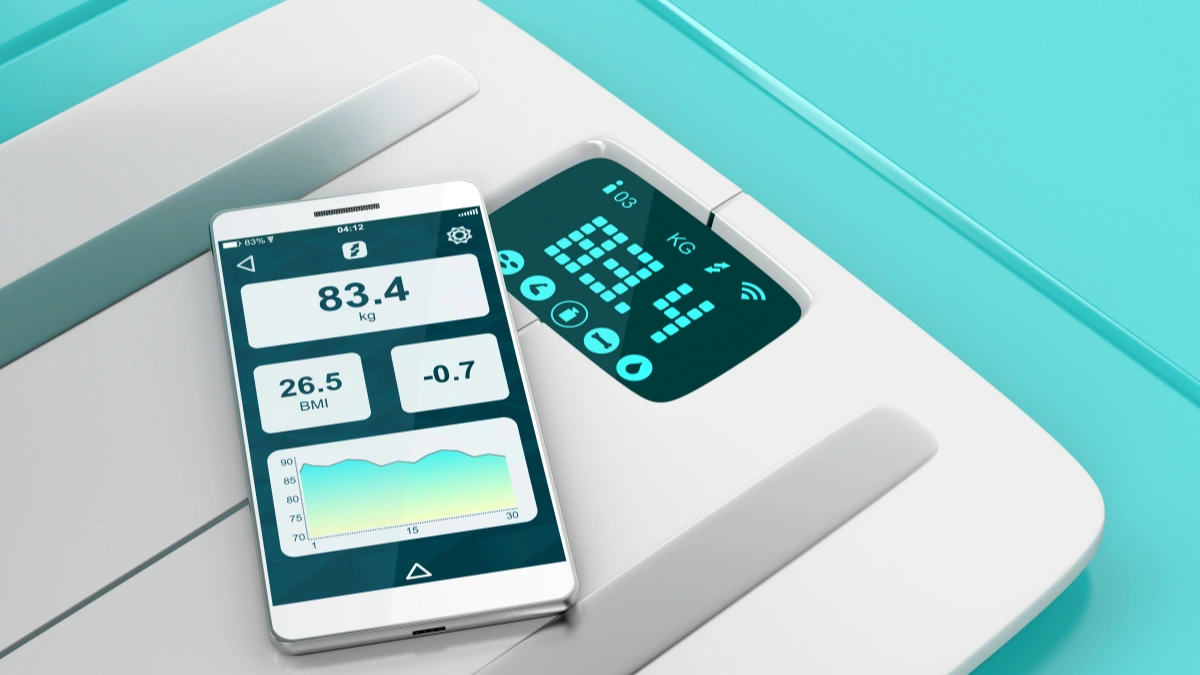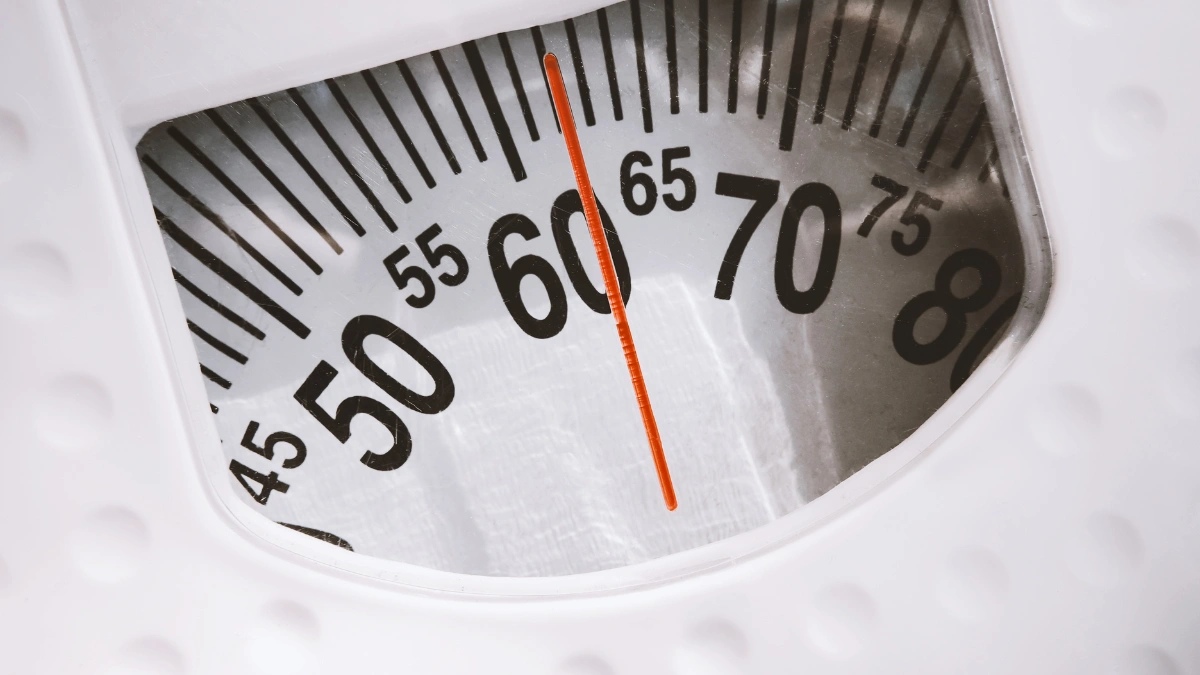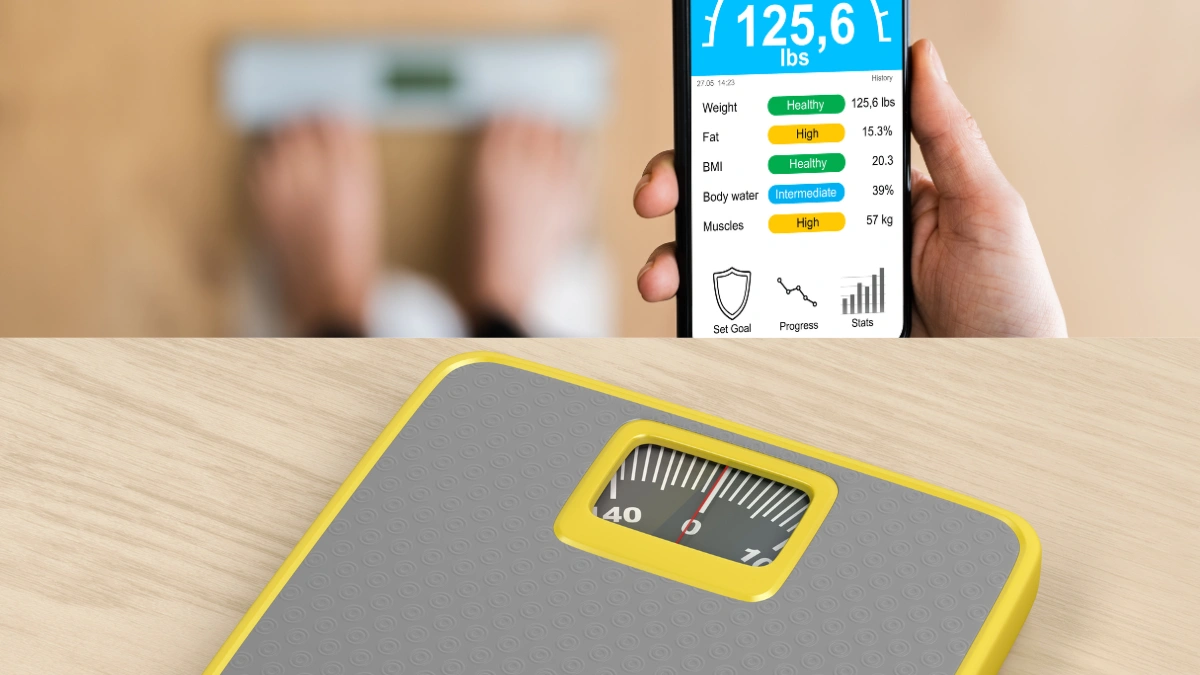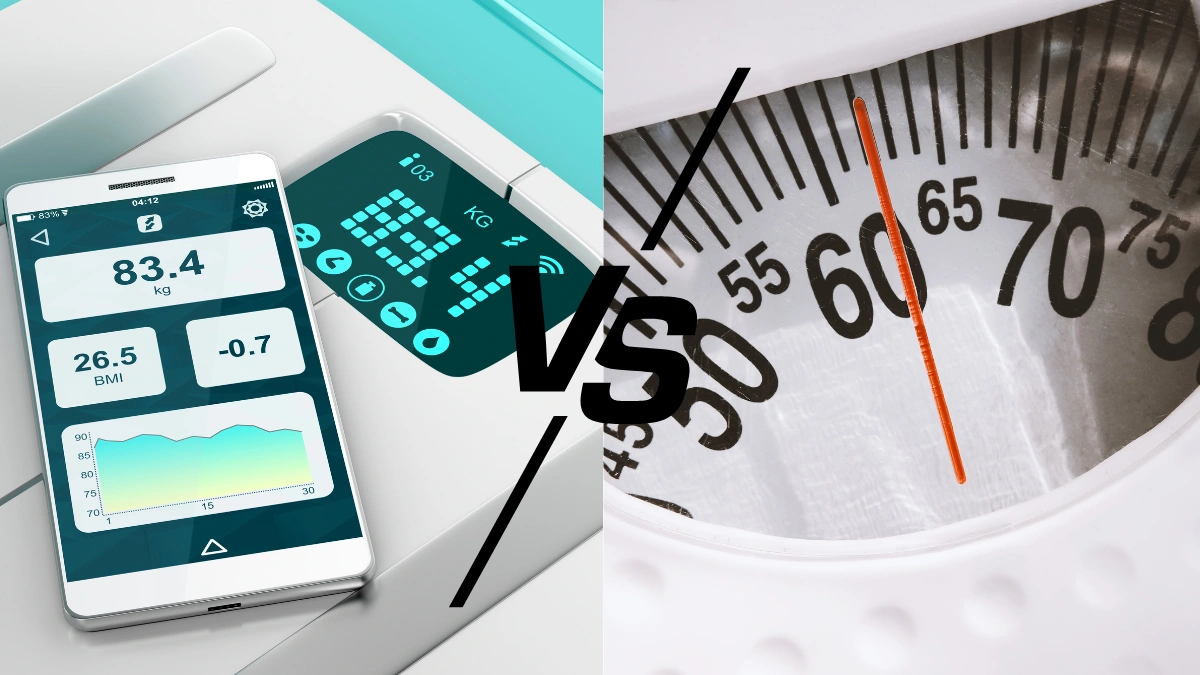Smart scale vs analog scale have the function of measuring body weight to help monitor your health. Basically, smart scale vs analog scale have several differences from the level of precision, capacity, and durability, to features and functionality.
Which is more accurate, smart scale vs analog scale, is always a question for many people.
This article will provide information regarding the differences between smart scale vs analog scale so that you can answer which device is more accurate.
What is Smart Scale?

Smart scale are scale equipped with advanced sensors and connectivity technologies such as Bluetooth or WiFi.
This tool can usually display several data such as body weight, body fat percentage, muscle mass, water content, bone mass, body mass index (BMI), and basal metabolic rate (BMR).
The data generated by the technology, then be sent to health apps on the user’s phone such as Google Fit, Apple Health, or the device’s built-in app.
Smart scale are suitable for the whole family, as some devices also support multi-user features.
What is the Analog Scale?

Analog scale work with a spring system, then the needle will move according to the weight of the body on it. The greater the load applied, the greater the stretch created. This is indicated by the needle continuing to move toward the right.
To find out your weight on an analog scale, you need to read it yourself from a moving needle. However, often the marking lines on manual scale are too small and close together. As a result, some people have difficulty reading what number the needle is on.
The Differences of Smart Scale vs Analog Scale

Here are the differences between smart scale vs analog scale:
1. Precision
Smart Scale: Superior in terms of precision.
Analog Scale: Not more accurate than a smart scale.
2. Capacity
Smart Scale: The standard load capacity of a digital scale is 150 kg.
Analog Scale: Can easily measure weights ranging from 100 kg to 120 kg, depending on the model.
3. Durability
Smart Scale: The sensors on digital scales will wear out and become insensitive over time.
Analog Scale: More sturdy and lasts longer than digital scales.
4. Portability
Smart Scale: Digital scales are very easy to carry because they are light and slim.
Analog Scale: Due to the spring mechanism included in the machine, analog scales are slightly heavier than digital scales.
5. Ease of use
Smart Scale: Has a display built directly into the equipment, which makes reading easier.
Analog Scale: The reading dial on an analog scale will wobble if there is a slight weight change, making it difficult to see the dial. As a result, reading the weight gauge may be difficult.
6. Features and functionality
Smart Scale: This not only measures body weight, but can also measure other information such as body fat percentage, muscle mass, water content, bone mass, body mass index (BMI), and basal metabolic rate (BMR).
Analog Scale: This does not have any additional features other than just measuring weight.
Factors Affecting the Accuracy of Digital Scale and Analog Scale
Digital scale are indeed more accurate and easier to use than analog scale. However, this does not mean that digital scale will always give the right value.
The following are several factors that can affect the accuracy of digital scale and analog scale:
- Uneven Surface: If you place the scale on an uneven surface, it can cause poor accuracy in the values you measure.
- Poor Calibration: You need to calibrate the scale before each use to ensure accurate measurement results.
- Wear and Damage: Not cleaning, calibrating, and maintaining the scale and placing more weight than the recommended amount can damage the scale. So, protect your scale from physical damage to get precise measurement results every time.
Those are the six differences between smart scale vs analog scale that you must know. By using a smart scale you can have accurate precision to take advantage of features and functionality.
Another thing to note is that smart scale on the market uses Bluetooth or WiFi technology, this technology must pass the certification test from the Directorate General of Digital Infrastructure (DJID).
With this certification, users can feel calm about using a smart scale device whose quality and security are guaranteed. For manufacturers or importers of smart scale devices, obtaining certification from DJID is a mandatory step before the device can be officially marketed in Indonesia.
To simplify the certification process, we are available to assist with this process as a reliable solution. [UN]

